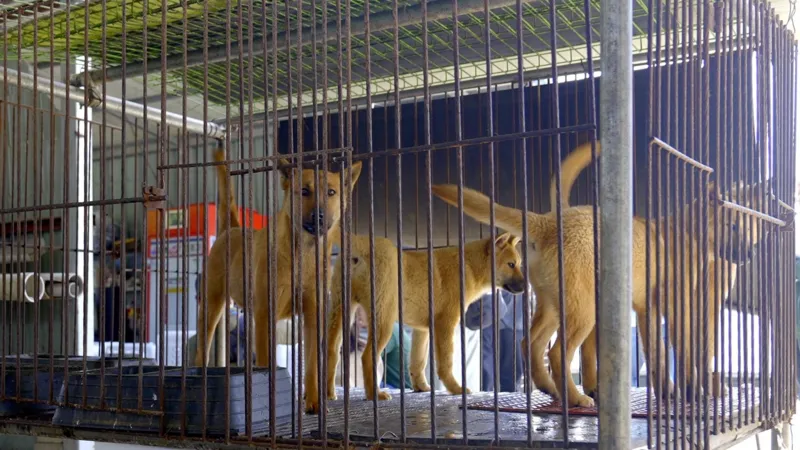The consensus that the non-oil export sector holds a lot of promise as a ready cash cow at a time when the country’s earnings weaken cannot be ignored. But the irony, however, is that the sector, promising as it is, remains undermined by structural challenges alongside the inconsistency in government policies. With the race to $200 billion in FX Repatriation (RT200 FX) programme by the Central Bank of Nigeria (CBN), the organised private sector is hopeful that Nigeria’s trade deficit may be reduced and foreign reserves boosted. FEMI ADEKOYA writes.
Natural resource profits should, in theory, provide poor countries a jump-start in developing their economies. Few resource-rich countries, on the other hand, have been able to convert their underground riches into physical and human capital that can be used to benefit their inhabitants.
Most countries, like Nigeria, have limited economic and export diversification, as natural resources provide for the majority of export income and government revenues. As a result, they are subject to economic shocks caused by fluctuating commodity prices.
While diversification in other less resource-dependent countries has been aided by a variety of internal and external factors, and it is based on natural resources (e.g., agribusiness and labor-intensive manufacturing in Indonesia), countries have also used a variety of competitiveness policies and capabilities, with no one-size-fits-all formula, for success.
With COVID-19 revealing the challenges of a mono-product economy, resource-rich countries have been forced to shift gears swiftly. In Nigeria’s case, it is more of double jeopardy as oil production, both in low and high price regimes, has remained challenging, leaving the country to explore borrowing options.
For many, the most effective strategy has been to develop active diversification policies that are adapted to their individual market and institutional situations.
To achieve this objective, the Central Bank of Nigeria (CBN), in February, released implementation guidelines for its newly created RT200 Non-oil Export Proceeds Repatriation Rebate Scheme, highlighting exporters’ responsibilities and benefits.
With oil receipts – the major source of Nigeria’s forex earnings – under pressure due to evacuation challenges in Nigeria’s oil sector, the CBN governor sees the RT200 as a major route to raising non-oil fx earnings.
The RT200 programme has five key anchors: value-adding exports facility, non-oil commodities expansion facility, non-oil fx rebate scheme, dedicated non-oil export terminal and bi-annual non-oil export summit.
The first anchor aims to provide concessionary and long-term funding for firms interested in expanding existing plants or building new ones to increase non-oil commodities value before they are exported. With the majority of current non-oil commodity exports being unprocessed, processing should increase Nigeria’s fx earnings.
The second anchor, a non-oil commodities expansion facility, will provide financing to business projects that will significantly boost local production of exportable commodities. This is to ensure there are raw commodities as feedstock to value adding facilities i.e., the first anchor. This anchor will also ensure that local prices of commodities do not get inflated.
The third anchor, the non-oil fx rebate scheme, aims to reward non-oil exporters that repatriate fx earnings back into the I&E window to boost liquidity in the market. It has similarities to the Naira4Dollar Scheme, which has increased remittances to USD100m/week from only USD6m, according to the CBN.
The fourth anchor, which will involve the building of dedicated non-oil export terminals, seeks to hasten the export process. To achieve its realisation, the CBN has called on state governments with existing ports to establish a dedicated export terminal and infrastructure network. States with current seaports in Nigeria include Lagos State, Rivers State, Cross River State and Delta State.
The final anchor is a biannual non-oil export summit with its inaugural event scheduled for the first week of April ’22. The summit will aim to discuss the issues, challenges, and opportunities in the non-oil segment of the economy. Participants will include bankers, customs officials, the Nigerian Ports Authority, the Nigerian Export Promotion Council, clearing agents, cargo airlines, shipping lines, logistics companies and insurance practitioners.
With non-oil exports accounting for less than 15 per cent of Nigeria’s fx earnings, government backed policies to raise the value of trade is a welcome development.
Godwin Emefiele PHOTO: Twitter/CBN
The Lagos Chamber of Commerce and Industry (LCCI) and Centre for the Promotion of Private Enterprise (CPPE), an economic and business advocacy think tank, have commended the Race-To-US$200billion in FX Repatriation (RT200 FX) initiative of the CBN, noting, however, that critical export infrastructure and right policies are required to achieve desired results.
Director-General, LCCI, Dr. Chinyere Almona, stated: “The plan by CBN to repatriate the sum of $200 billion from non-oil export in the next three to five years is commendable against the background of having more diversified revenue sources in the economy.
“The Race to $200 billion in FX Repatriation (RT200 FX) programme requires the right policies, critical export infrastructure, international trade diplomacy, and adequate funding to achieve the desired results within the stipulated period.”
She also cautioned the apex bank on its continuous intervention in the various sectors of the economy.
“Currently, there are many credit facilities extended to farmers and manufacturers that may suffer non-repayment due to the high cost of production. We urge caution in the way the CBN intervenes in various sectors of the economy as this indicates an element of a dysfunctional economic system.
“Beyond the loans to support value addition to our exports, there is an urgent need to improve the export infrastructure at our ports, create more digital platforms to reduce the human interface for exports and formulate the right policies. To this end, we urge the government to accelerate the plan to build domestic export warehouses by the Nigerian Export Promotion Council (NEPC). The concern of the chamber is that without infrastructure, the grants may end up as lost ventures,” Almona added.
Also commenting, Dr Muda Yusuf, CEO, CPPE, said that the RT200 programme is commendable as it would go a long way in affecting the economy tremendously if properly managed.
He however highlighted the success factors that should be considered for the initiative to succeed.
His words: “There is a need to put certain things in place such as fixing structural constraints impeding non-oil exports, reviewing the pricing regime in the I&E window, giving exporters access to export proceeds, expanding the scope of forex supply strategies and allowing forex-generating MDAs to sell at the I&E window.
“Structural variables are not within the purview of the CBN or the Bankers Committee. The fiscal authorities have much bigger roles to play in fixing the structural constraints which have been impeding non-oil exports productivity and competitiveness for decades.”
Investment banking and research firm, Afrinvest (West) Africa Limited, has lauded the effort of the Central Bank of Nigeria (CBN) towards enhancing the potential of Nigeria’s non-oil sector to become a major source of foreign exchange (FX) earnings and the driver of economic growth.
According to Afrinvest, though it might be hard, “we like that the RT200 FX programme policy proposes a comprehensive approach to engendering non-oil export growth by proposing solutions from the initial stage of producing raw materials, to the process of value addition, and facilitating exports by supporting infrastructure.
“However, we note that the ultimate goal of the policy – achieving $200 billion from non-oil exports over the next three to five years ($40.0 billion per year on average) – might be a tough mark, given that the non-oil sector would have to grow 8x above the average size of $5.2 billion (between 2016 and 2020) in each of the next five years in a base case.
“That said, we are concerned that there seems to be a lack of coordination with the fiscal authorities (to the best of our knowledge) especially given that the fourth anchor proposes to establish Dedicated Non-Oil Export Terminals in response to current bottlenecks and logistics challenges at major ports and failure of some Nigerian exports to meet minimum international standards,” the firm noted.
Head of Export and Agric Businesses at Fidelity Bank, Isaiah Ndukwe, has suggested that the recent RT200 FX policy by the Central Bank of Nigeria (CBN) would encourage more businesses to go into export as well as prompt exporters to add value to the commodities they export.
He added: “The new policy will not only reshape exporters’ mindsets, but will also infuse value addition on their commodities, allowing them to earn more forex.
“With the implementation of this policy, the CBN has stated that the supply of foreign currency to commercial banks will cease by the end of 2022, while investors will be able to generate forex through the RT200 FX Program template that has been designed to strengthen commodity exports.”











